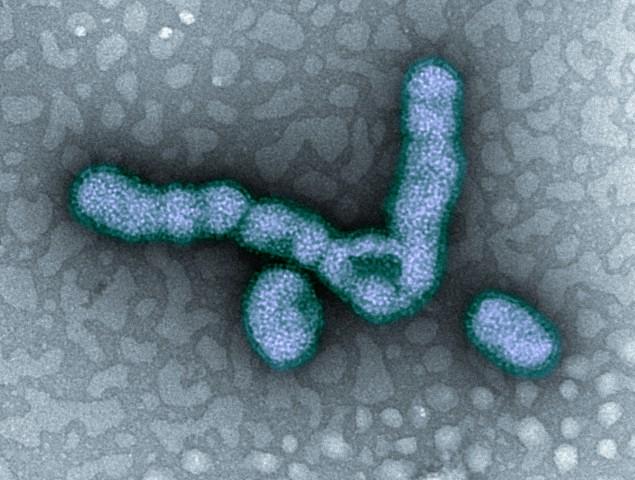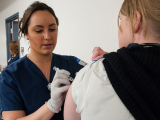A World Health Organization (WHO)-led advisory committee meeting to recommend the seasonal flu strains to include in the Northern Hemisphere’s 2025-2026 flu season is slated to meet on February 28, but it's unclear if US members will participate following an executive order from President Trump that withdraws the country from the WHO, a top WHO official said yesterday during a WHO briefing on global health issues.
The consultation for the Northern Hemisphere takes place every February, and in the weeks leading up to the main strain-selection meeting, the committee pores over flu virus data from a network of 130 national flu centers, including those in the United States. Country regulatory agencies use the recommendations in weighing their own vaccine strain choices, and flu vaccine manufacturers use them to begin the process of making vaccine for the upcoming flu season.
The advisory committee also recommends any new candidate zoonotic flu virus vaccine strains needed for pandemic preparedness, a process they repeat in September when making recommendations for Southern Hemisphere seasonal flu vaccines.
Maria Van Kerkhove, PhD, WHO’s director of epidemic and pandemic preparedness and prevention, said the WHO has kept in touch with the US Centers for Disease Control and Prevention (CDC) but has not heard back from them since January 24. She said the CDC has not been reporting flu surveillance data through the usual global channels, which includes the FluNet system.
US labs are among several WHO Collaborating Centers that have been characterizing viruses, sharing samples and sequencing findings, and conducting risk assessments for the past 73 years.
No interruption in US IHR reporting
However, Van Kerkhove said the United States has been reporting human novel flu viruses cases such as a recent variant H1N2 (H1N2v) case from Iowa and a recent H5 influenza case through the International Health Regulations (IHR) platform. She said the WHO has also received the latest information on H5N1 viruses in US animals through routine US Department of Agriculture postings.
"We welcome active technical exchange with the United States," she said.
For now, it's not known if US officials will participate in a face-to-face meeting on February 28, but the meeting will go on, and the group will make its recommendations, regardless. Van Kerkhove said there won't be a blind spot regarding viruses circulating in the United States, adding that the committee reviews flu virus characterization reports from the past 6 months, which will cover many earlier virus samples from the United States.




















